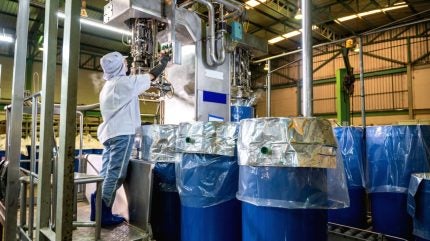
UFlex, a company in flexible packaging and solutions, is investing around Rs17.1bn ($200m) in Egypt to enhance its backward integration strategy and serve markets in neighbouring countries and Europe, as well as meet domestic needs, as reported by PTI citing a senior company official.
The firm is allocating about $70m for a PET (polyethylene terephthalate) chips facility, a key raw material for BOPET films, and an additional $125m to $130m for an aseptic packaging unit, according to UFlex Finance and Accounts president and chief financial officer Rajesh Bhatia.
Rajesh Bhatia said: “In Egypt, we have two expansions currently going on. The first is the PET resin facility which is our backward integration, because we make BOPET films for which we require the PET resin. This project has been on the anvil for so many years.
“Given the size that we have attained, especially after we set up capacities in Russia, Poland, Egypt and Nigeria, we thought that it is high time now to also secure ourselves from a raw material perspective.”
A similar PET chips facility has been set up in Panipat, India, with an investment of Rs6bn, completed in April this year, to meet Indian requirements, according to The Economic Times.
Rajesh Bhatia added: “The Egypt unit is to meet (demands from) Egypt, Middle East, Europe and if there is still a leftover (it will be used for) for the Americas requirements… This is a project that cost us about USD 70 odd million and we will complete it by the end of this fiscal.”
“In aseptic packaging in Egypt, we are putting up a 12-billion-packs-per-annum capacity plant. That is to take care of the Egypt market, which is a 5-billion-packs-a-year market and currently there is no manufacturing facility.”
The aseptic packaging project is anticipated to be finished by the end of FY26.
Bhatia highlighted the strategic advantages of Egypt, including duty-free exports to Europe, lower manpower and energy costs, and the target market encompassing Egypt and European countries.
The new facilities will also address the growing demand in Africa and the Middle East.
Regarding the company’s growth outlook, UFlex is targeting a 15% consolidated revenue growth for FY25 over the previous fiscal year, according to Bhatia.
UFlex reported a consolidated revenue of Rs135.1bn in FY23-24.



